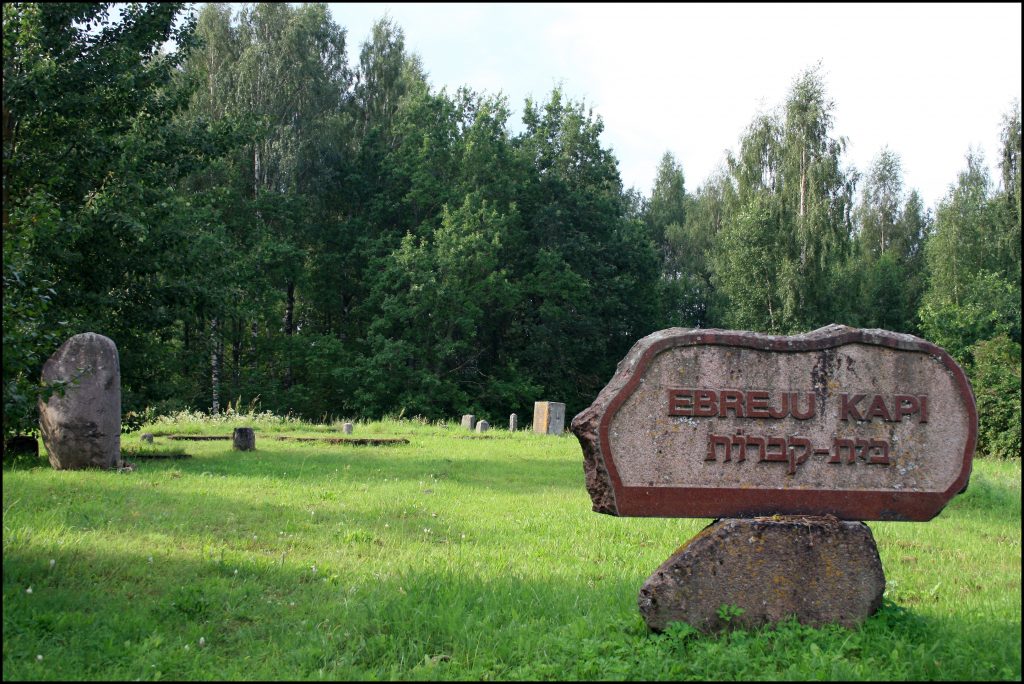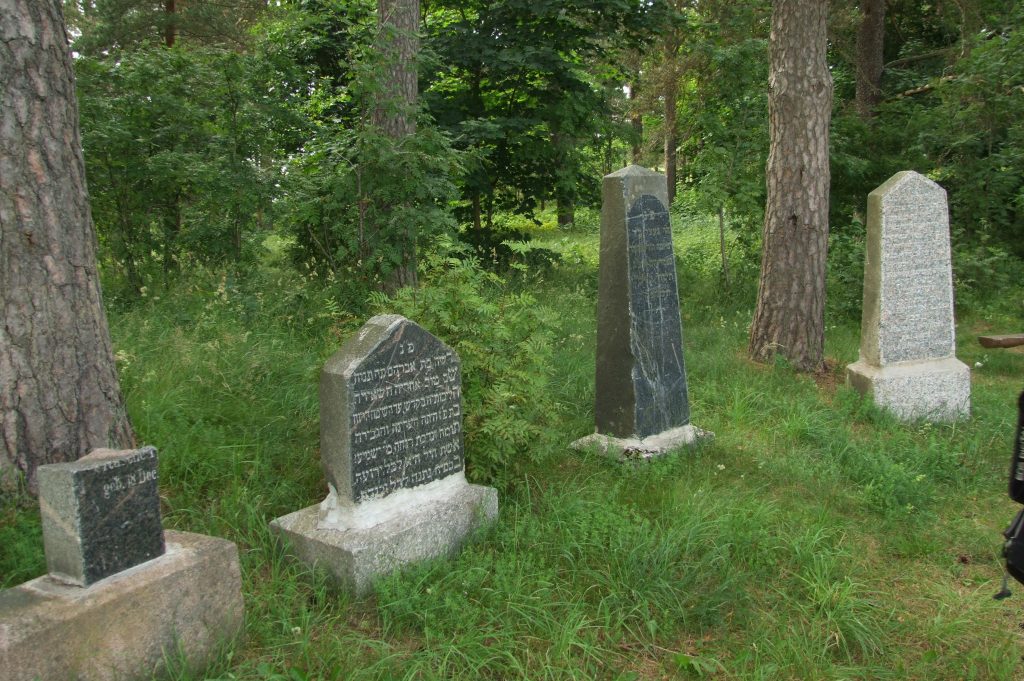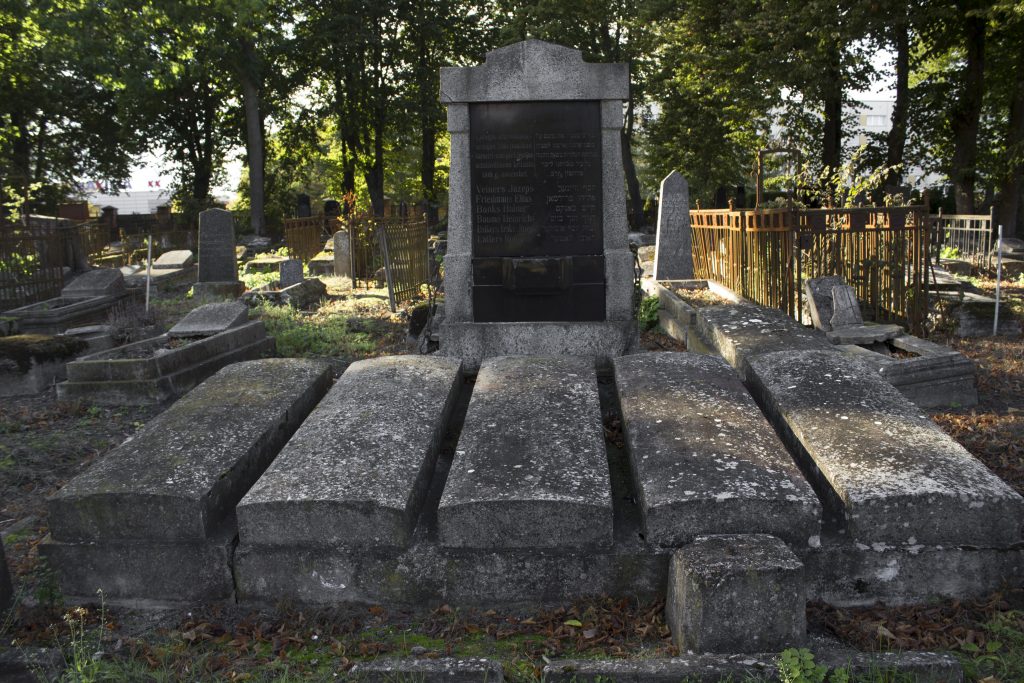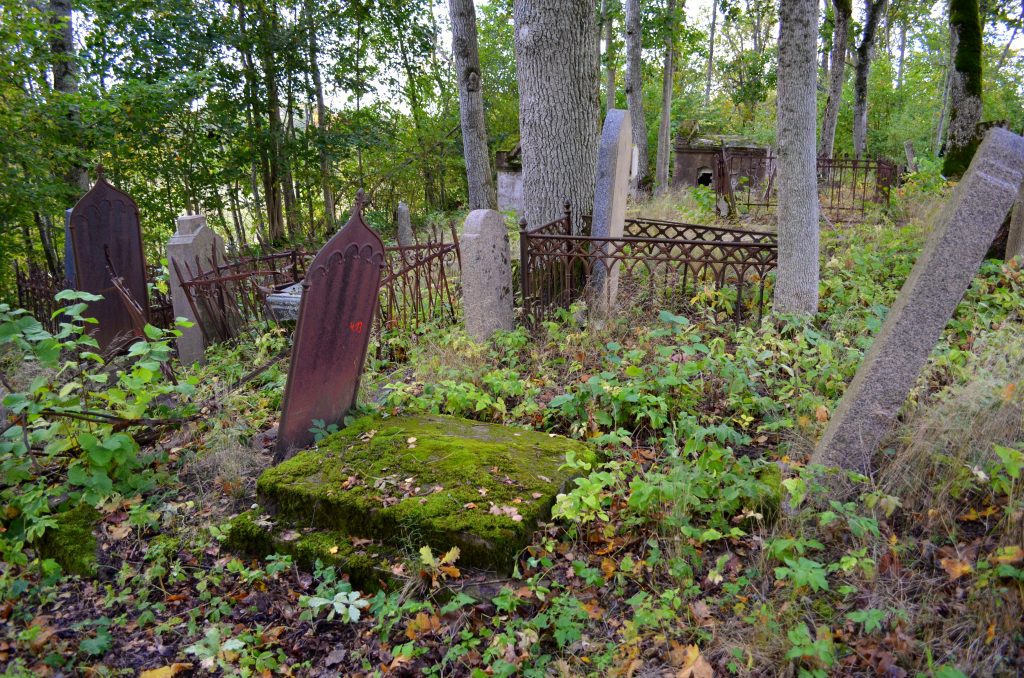The number of active Jewish communities in Latvia is much smaller since the Shoah. All information concerning them is likely to quickly prove obsolete, since demographic trends in the communities leave little doubt about their dying out in the near future.

The aliyah toward Israel is likewise becoming increasingly significant. Inquiries can be made at the offices of the Jewish community in Riga . Despite present circumstances, a trip to Latvia must above all include visiting cemeteries. The best way to find the remains of a Jewish cemetery is to solicit the aid of a local elderly person (financial compensation being the rule in the case of a visit). The main difficulty visitors encounter in finding ancestral graves is that the tombstones generally bear only the Hebrew name of the deceased (i.e. the first name and the name of the person’s father), without any indication of the family name. Although not exhaustive, following is a list of cemeteries and their state of preservation. For each city of the country, we give a brief description of its cemeteries.

Aizpute: Some hundred or so gravestones still remain, dating for the most part from the beginning of the nineteenth century.
Auce: There are some ten stone grave markers, located on a piece of land adjacent to a Christian cemetery.
Dagda: Approximately seventy gravestones remain.
Daugavpils: In the old cemetery of the Alte Vorstadt, only one broken gravestone remains (from the 1830s). The new cemetery has close to 200 tombs. The registers of the local Hevra Kasdisha, going back seventy years or so, are available for examination at the nearby community center.
Gostini: The cemetery, with 160 tombs, is located about three miles from the city, on the route to Madona.
Jaunjelgava (Friedrichstadt): The large cemetery possesses a number of stone tombs decorated with engraved motifs, including carved lions and birds.
Jekabpils (Jakobstadt): Situated close to the Duiha River, the cemetery is still in use by the remaining twenty families, although it is not in good condition.

Jelgava (Mitau): This cemetery, created in the sixteenth century, was almost entirely destroyed by the Nazis and later by the Soviets. Located at the corner of Zalites and Bauskas Streets, it now retains no more than thirty tombs.
Kraslava: This seventeenth-century cemetery is in an excellent state of preservation and has a hundred or so gravestones, some belonging to Russian soldiers of the Red Army.
Kuldiga (Goldigen): Located to the west of the city (Vecie kapi) between Leipajas and Parka streets, this cemetery has been transformed into a municipal park. It has a Jewish section (on the Parka side) with approximately 25 gravestones. Damaged gravestones have been transferred to the neighboring city of Skrunda. Note: With a few exceptions in the capital cities (and even there…), these exhumations have taken place without any respect for Jewish religious laws.
Liepaja (Libau): This cemetery, which is both Jewish and Christian, contains around 500 graves in relatively good condition. The funerary registers (up to 1941) are available for examination by request from the caretaker.
Piltene: This well-preserved cemetery dates from the seventeenth century.
Prejli: The cemetery has around twenty graves, overgrown with vegetation; it also includes a memorial to the victims of the Shoah.

Rezekne: Situated at the top of a hill in the suburbs of the city, this well-preserved cemetery contains some 300 graves.
Sabile: The small cemetery here is home to some twenty untended graves and is located at the end of an unmarked path.
Saldus (Frauenburg): The cemetery is located just at the exit of the city in an unmarked location of the forest. Sixty graves remain on a site that is completely unmaintained and unguarded.
Skaistkalne: Bordering the Christian cemetery, this cemetery has forty graves.
Subate: The town curate, who would bear contacting, is interested in preserving this site, which is approximately 200 years old.
Talsi: The cemetery is situated on the other side of the path leading to the Christian cemetery; it is overgrown with vegetation and has been vandalized.
Tukums: The cemetery is in good condition and contains around 200 graves, including a significant mausoleum (belonging to the last rabbi of the town).
Valdemarpils (Sasmachen): This cemetery is situated to the east of the city between Dzirnavu and Ezera Streets at the top of a wooded hill above Lake Sasmaka. Destroyed by the Soviets in the 1960s, almost nothing of this cemetery remains. A number of gravestones were used for paving the walkways.
Varakljany: This cemetery has 250 graves in good condition, the oldest dating from 1820.
There are others less important cemeteries in Ventspils (Windau), Viljany, and Viski (on a small island in a lake).